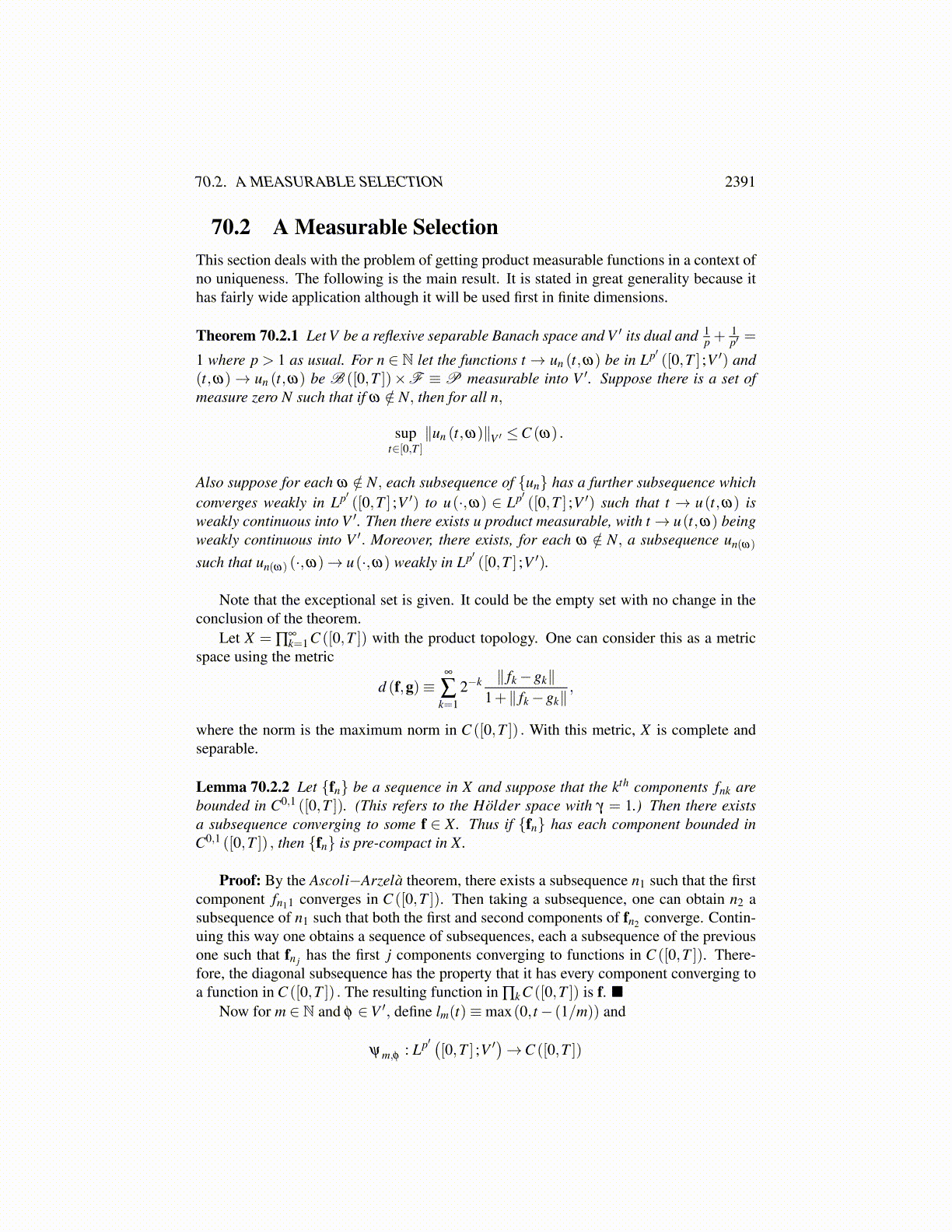
Chapter 70
Measurability Without UniquenessWith the Ito formula which holds for a single space, it is time to consider stochastic ordinarydifferential equations. First is a general theory which allows one to consider measurablesolutions to stochastic equations in which there is no uniqueness available. Unfortunately, itdoes not include obtaining adapted solutions. Instead, it includes measurability of functionswith respect to a single σ algebra. Then when path uniqueness is available, one can includethe concept of adapted solutions rather easily and this will be done for ordinary differentialequations. First is a general result about multifunctions.
70.1 Multifunctions And Their MeasurabilityLet X be a separable complete metric space and let (Ω,C ,µ) be a set, a σ algebra ofsubsets of Ω, and a measure µ such that this is a complete σ finite measure space. Also letΓ : Ω→PF (X) , the closed subsets of X .
Definition 70.1.1 We define Γ− (S)≡ {ω ∈Ω : Γ(ω)∩S ̸= /0}
We will consider a theory of measurability of set valued functions. The followingtheorem is the main result in the subject. In this theorem the third condition is what we willrefer to as measurable. The second condition is called strongly measurable. More can besaid than what we will prove here.
Theorem 70.1.2 In the following, 1.⇒ 2.⇒ 3.⇒ 4.
1. For all B a Borel set in X ,Γ− (B) ∈ C .
2. For all F closed in X , Γ− (F) ∈ C
3. For all U open in X ,Γ− (U) ∈ C
4. There exists a sequence, {σn} of measurable functions satisfying σn (ω) ∈ Γ(ω)such that for all ω ∈Ω,
Γ(ω) = {σn (ω) : n ∈ N}
These functions are called measurable selections.
Also 4.⇒ 3. If Γ(ω) is compact for each ω , then also 3.⇒ 2.
Proof: It is obvious that 1.) ⇒ 2.). To see that 2.) ⇒ 3.) note that Γ− (∪∞i=1Fi) =
∪∞i=1Γ− (Fi) . Since any open set in X can be obtained as a countable union of closed sets,
this implies 2.) ⇒ 3.).Now we verify that 3.)⇒ 4.). Let {xn}∞
n=1 be a countable dense subset of X . For ω ∈Ω,let ψ1 (ω) = xn where n is the smallest integer such that Γ(ω)∩B(xn,1) ̸= /0. Therefore,ψ1 (ω) has countably many values, xn1 ,xn2 , · · · where n1 < n2 < · · · . Now
{ω : ψ1 = xn}=
2391